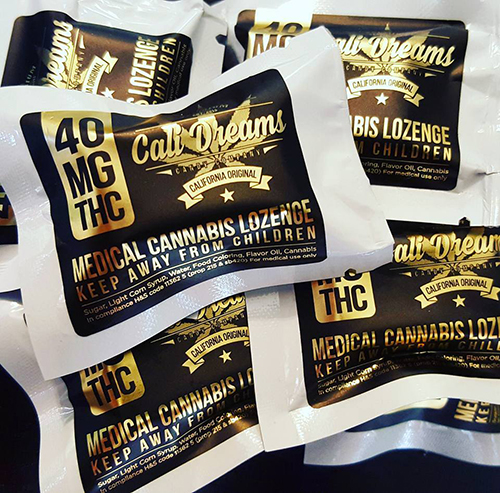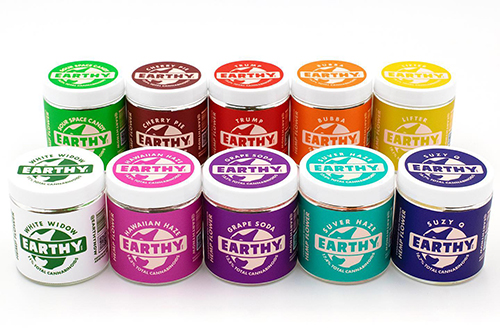How Do You Properly Label Delta-8 THC Products?
This entry was posted on June 11, 2024 .
Delta-8 THC products are becoming increasingly popular in the cannabis market. However, labeling these products requires a clear understanding of various regulations and best practices to ensure compliance and consumer safety.
This guide will provide you with all the necessary information about Delta-8 THC labeling, including the how, why, when, and where of proper labeling practices.


Understanding Elements:
When it comes to product labels, there’s no one-size-fits-all solution. Each product requires a unique approach to labeling, influenced by factors such as container shape, design preferences, and regulatory needs.
Understanding these elements can help you make informed decisions, ensuring your labels are both attractive and compliant.
Understanding Delta-8 THC and Its Legal Status
What is Delta-8 THC?
Delta-8 THC is a cannabinoid found in cannabis plants, often produced synthetically from CBD. It has psychoactive effects similar to Delta-9 THC but is typically considered less potent.
Legal Landscape of Delta-8 THC
The legality of Delta-8 THC varies by state and is influenced by federal regulations. The 2018 Farm Bill legalized hemp and its derivatives, but the DEA considers synthetic cannabinoids as controlled substances. This conflict creates a patchwork of regulations across the United States.
State-Specific Regulations
States with Delta-8 THC Bans
Several states have enacted bans or restrictions on Delta-8 THC products. It's crucial to stay updated on these regulations to ensure compliance.
- States with Bans: States like Alaska, Arkansas, Colorado, Delaware, and others have banned Delta-8 THC products.
- States Considering Bans: States such as Illinois and Oregon are considering stricter regulations or bans.


Best Practices for Delta-8 THC Labeling
Essential Labeling Components
Proper labeling of Delta-8 THC products involves including essential information to ensure compliance and consumer safety.
- Product Name and Description: Clearly state that the product contains Delta-8 THC.
- Net Weight/Volume: Indicate the total amount of product in the package.
- Ingredients List: List all ingredients used in the product, including Delta-8 THC.
- Usage Instructions: Provide clear instructions on how to use the product safely.
- Warnings and Disclaimers: Include necessary warnings about the psychoactive effects and potential risks.
Compliance with State Regulations
Each state may have specific labeling requirements. Ensure your labels comply with local regulations, including any required symbols or statements.
- Sequential Numbering: Some states require labels to include a unique identification number for tracking purposes.
- QR Codes and Barcodes: These can be used for product authentication and to provide additional information.
Production and Labeling of Specialty Cannabis Products
Importance of Compliance
Ensuring your Delta-8 THC products comply with all relevant regulations is essential for avoiding legal issues and ensuring consumer safety.
- State Approval: Obtain clear state approval for all products you plan to sell.
- Licensing: Ensure your business is properly licensed to handle and sell Delta-8 THC products.
Labeling Features
Custom labels should include features that help in tracking and verifying the product.
- Sequential Numbering: Helps in tracking products.
- QR Codes and Barcodes: Useful for providing additional information and ensuring authenticity.
Ready to Properly Label Your Delta-8 THC Products?
Ensuring your Delta-8 THC products are properly labeled is crucial for compliance and consumer trust.
At Lightning Labels, we specialize in providing high-quality custom labels tailored to the cannabis industry. Visit our custom labels page to get started with compliant Delta-8 THC labeling today.
FAQs: Delta-8 THC Product Labels
What is the importance of proper Delta-8 THC labeling?
Proper labeling ensures compliance with state and federal regulations, provides necessary information to consumers, and helps in tracking and verifying products.
Can I sell Delta-8 THC products in any state?
No, the legality of selling Delta-8 THC products varies by state. It's crucial to check local regulations before selling these products.
What information must be included on Delta-8 THC labels?
Essential information includes the product name, net weight/volume, ingredients list, usage instructions, and any required warnings or disclaimers.
How can I ensure my Delta-8 THC labels are compliant?
Stay updated on state-specific regulations, include all necessary labeling components, and consider using custom labels with features like sequential numbering and QR codes.

 Custom Labels
Custom Labels  Custom Beverage Labels
Custom Beverage Labels  Custom Lip Balm Labels
Custom Lip Balm Labels  Custom Warning & Safety Labels
Custom Warning & Safety Labels  Perfume Bottle Labels
Perfume Bottle Labels  Bumper Stickers
Bumper Stickers  Custom Prop 65 Warning Labels
Custom Prop 65 Warning Labels  Custom Stickers
Custom Stickers